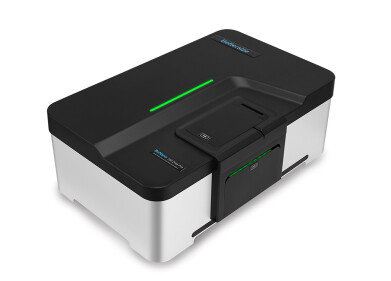Laboratory Products
Could Whooping Cough Become a Superbug?
Feb 15 2020
New research from the University of New South Wales (UNSW) warns that whooping cough, a highly contagious respiratory disease that can cause fatalities in newborns and young children, could evolve into a superbug if a new vaccine isn't developed soon. According to the research team, whooping cough bacteria is becoming faster and more efficient at infecting hosts, including those with vaccinations.
Used in Australia since 2000, the current vaccine targets three whooping cough antigens. Though according to UNSW scientists, it's no longer effective and helped contribute to the whooping cough epidemic of 2008 – 2012, which saw more than 140,000 cases diagnosed across the country.
Strains evolving and adapting to colonise vaccinated hosts
The study was published in the journal Vaccine, with the team explaining how whooping cough strains are evolving to survive and colonise vaccinated hosts. To address this resistance, they have identified several new antigens that could be targeted by new vaccines. If a new vaccine isn't developed, the researchers warn whooping cough could emerge as a superbug.
Dr Laurence Luu, UNSW microbiologist and first author of the study, says the disease's ability to evolve and adapt could explain why whooping cough has reared its head in Australia, despite high vaccination rates.
"We found the whooping cough strains were evolving to improve their survival, regardless of whether a person was vaccinated or not, by producing more nutrient-binding and transport proteins, and fewer immunogenic proteins which are not targeted by the vaccine," says Dr Luu.
Whooping cough bacteria learn to scavenge and hide
He explains how this evolution has allowed whooping cough bacteria to siphon nutrients from the host and elude the body's natural immune system by limiting protein production. "Put simply, the bacteria that cause whooping cough are becoming better at hiding and better at feeding - they're morphing into a superbug," he warns.
In the next five to 10 years the team hope a new whooping cough vaccine will be developed. Until then, they stress the current vaccine is still relevant and will play an important role in continuing to protect Australians against the contagious respiratory disease.
Immunisation with current vaccine still "critical"
"It is critical that people are vaccinated to prevent the spread of whooping cough - the current vaccine is still effective for protecting against the disease - but new vaccines need to be developed in the long-term," says Professor Ruiting Lan, who worked on the research team with Dr Luu. "We need more research to better understand the biology of the whooping cough bacteria, how they cause disease and what proteins are essential for the bacteria to cause infection, so that we can target these proteins in a new and improved vaccine."
From developing vaccines to curing cancer, technology is at the forefront of modern medicine. For insight into how IR imaging has emerged as an important solution for safe and accurate temperature measurement, don't miss 'Infrared Cameras: Advanced Temperature Measurement for Today’s Breakthrough Medical Research.'
Digital Edition
ILM 49.5 July
July 2024
Chromatography Articles - Understanding PFAS: Analysis and Implications Mass Spectrometry & Spectroscopy Articles - MS detection of Alzheimer’s blood-based biomarkers LIMS - Essent...
View all digital editions
Events
ACS National Meeting - Fall 2024
Aug 18 2024 Denver, CO, USA
Aug 25 2024 Copenhagen, Denmark
Aug 28 2024 Phnom Penh, Cambodia
Sep 04 2024 Chiba, Tokyo, Japan
Sep 04 2024 University of Warwick, Coventry, UK


















